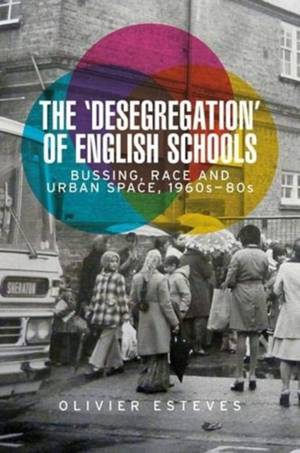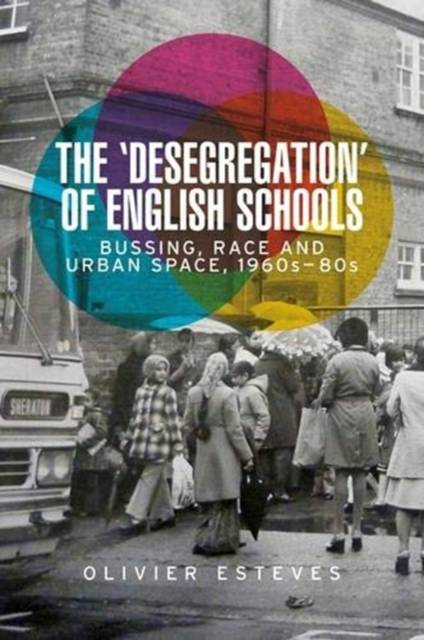
Bedankt voor het vertrouwen het afgelopen jaar! Om jou te bedanken bieden we GRATIS verzending (in België) aan op alles gedurende de hele maand januari.
- Afhalen na 1 uur in een winkel met voorraad
- In januari gratis thuislevering in België
- Ruim aanbod met 7 miljoen producten
Bedankt voor het vertrouwen het afgelopen jaar! Om jou te bedanken bieden we GRATIS verzending (in België) aan op alles gedurende de hele maand januari.
- Afhalen na 1 uur in een winkel met voorraad
- In januari gratis thuislevering in België
- Ruim aanbod met 7 miljoen producten
Zoeken
The 'Desegregation' of English Schools
Bussing, Race and Urban Space, 1960s-80s
Olivier Esteves
Paperback | Engels
€ 61,45
+ 122 punten
Uitvoering
Omschrijving
Dispersal, or 'bussing', was introduced in England in the early-1960s after white parents expressed concerns that the sudden influx of non-Anglophone South Asian children was holding back their own children's education. It consisted in sending busloads of mostly Asian children to predominantly white suburban schools in an effort to 'spread the burden' and to promote linguistic and cultural integration. Although seemingly well-intentioned, dispersal proved a failure: it was based on racial identity rather than linguistic deficiency and ultimately led to an increase in segregation, as bussed pupils were daily confronted with racial bullying in dispersal schools. This is the first ever book on English bussing, based on an in-depth study of local and national archives, alongside interviews with formerly-bussed pupils decades later.
Specificaties
Betrokkenen
- Auteur(s):
- Uitgeverij:
Inhoud
- Aantal bladzijden:
- 240
- Taal:
- Engels
Eigenschappen
- Productcode (EAN):
- 9781526148018
- Verschijningsdatum:
- 30/04/2020
- Uitvoering:
- Paperback
- Formaat:
- Trade paperback (VS)
- Afmetingen:
- 156 mm x 234 mm
- Gewicht:
- 340 g

Alleen bij Standaard Boekhandel
+ 122 punten op je klantenkaart van Standaard Boekhandel
Beoordelingen
We publiceren alleen reviews die voldoen aan de voorwaarden voor reviews. Bekijk onze voorwaarden voor reviews.









